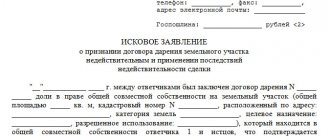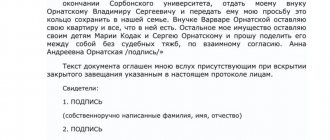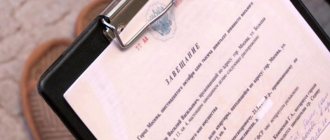11
Each owner has the right to formalize a will in the event of death. The document contains the last will of the deceased. A will is a one-sided transaction. However, often applicants try to challenge the document in order to circumvent the testator’s orders. As a rule, such actions imply the selfish interest of the legal heirs. However, sometimes the situation really is that the deceased owner was deceived into drawing up the document. Let's consider whether it is possible to challenge a will for an apartment after the death of the testator and how to do it.
Is it possible to challenge a will after the death of the testator?
The legal basis to appeal a document appears after the death of the testator. Until the opening of the inheritance, the will has no legal force regarding the distributed property.
Expert opinion
Stanislav Evseev
Lawyer. Experience 12 years. Specialization: civil, family, inheritance law.
It is possible to recognize a unilateral transaction as invalid if there were obvious violations of the law. For example, the interests of persons who are entitled to a compulsory share were not taken into account or the will was drawn up by an incapacitated subject (Article 171 of the Civil Code of the Russian Federation).
However, this happens quite rarely. But if the applicants have documents in hand confirming this fact, then there is every reason to file a claim.
Proper plaintiffs
Any interested person has the right to challenge the administrative document. thus, a citizen who will not benefit from the reversal of the order cannot be a plaintiff.
| No. | Proper plaintiffs | A comment |
| 1 | Legal successors under a will/law in the event of a dispute over the division of property | For example, if the testator left a car to one child and securities to another. Then one of them may be dissatisfied with this procedure for distributing property. |
| 2 | Successors under a will/law against an unworthy recipient | If the heir under the will committed unlawful acts against the testator, then the claimants by law can file a claim to declare such a person unworthy of the property of the deceased citizen. However, if a judicial act was passed before the testator made a will, then the rule on eliminating the right of inheritance does not apply. Consequently, there are no grounds for challenging the administrative order. |
| 3 | Mandatory heirs | A will can be protested by citizens who are entitled to an obligatory part (spouse, children, parents), for example, if the document did not take into account their interests at the date of preparation. After all, from the moment the will is executed by the notary until the day of death of the testator, sometimes years pass. During this time, the testator can start a family, give birth or adopt a child. Such persons are entitled to an obligatory part of the property, regardless of the presence and content of a will. Legal representatives (parents, guardians) act in the interests of minors or incapacitated citizens. |
Example. Citizen S. made a will for a dacha and a plot of land. After the death of the testator, the property must go to the son. The testator's current family consists of 3 people (he, his wife and his son). Bequeathed property is not joint property of the spouses, so the wife's rights are not affected. The will did not apply to the rest of the property (residential property and car). After the death of citizen S., the wife and her son filed documents to accept the inheritance. However, it later turned out that the disabled son from his first marriage also lays claim to the inheritance. The main interest was the dacha. By law, children are entitled to a mandatory share, regardless of the contents of the will. In such a situation, the spouse is entitled to half of the property by law (housing and car), the rest of the inheritance is divided between all relatives (two children and a spouse) of the deceased person in equal shares. The inheritance under a will is subject to division in equal parts among children from different marriages. To avoid lengthy legal proceedings, the heirs of the first stage entered into an agreement among themselves on the division of property. The wife was left with residential property. The son received a car and a plot of land. The child from his first marriage got a dacha.
Reasons
| No. | Base | A comment |
| 1 | Incapacity | The fact itself must be confirmed by a court decision. If during the life of the testator the relatives did not go to court, but there is reason to believe that the deceased suffered from alcoholism, was a drug addict or was under the influence of medications, then a claim can be filed after his death. However, a post-mortem examination will have to be carried out to prove the stated claims. |
| 2 | Availability of a mandatory share in the apartment | The testator cannot deprive minors or disabled children of their rights. Therefore, if the administrative document does not take into account the interests of young children, then parents or guardians can go to court. The same applies to the second spouse, parents and dependents of the deceased. |
| 3 | The document does not comply with the established form | According to general rules, a will must be in writing and certified by a notary. In some cases, documents can be certified by the head physician of the hospital where the deceased citizen was treated. If a person works on a sea vessel, then the document can be certified by the captain. In places of deprivation of liberty, the will is certified by the head of the colony. If a person is in the army, then the documents are certified by the commander of the military unit. Violation of the prescribed procedure serves as a reason to challenge the document. |
| 4 | Unworthy heir | But there must be evidence that such persons unlawfully tried to influence the decision of the deceased in order to reduce the share of other applicants or persuaded other heirs to do so. The rule does not apply if the deceased person bequeathed property to an unworthy applicant after he had lost the right to inherit. The same applies to citizens who were obliged to support the testator, but maliciously avoided providing for it. These facts must be confirmed by a court decision. |
| 5 | Forgery of documents | For example, if the will contains the signature of another person. To identify this fact, a handwriting examination is carried out. If she confirms that the signature does not belong to the testator, then such a document is considered invalid. Separately, the court sends the case materials to law enforcement agencies to initiate a criminal case and identify the perpetrators. |
What is a will
A will is a document drawn up in the form prescribed by law. With its help, you can dispose of your property in the event of death. Typically, a will is drawn up if you do not want the property to be distributed among the heirs according to the order established by default by law.
A will is made in writing
, and then
certified by a notary
or other person authorized by law.
The procedure must be performed personally and be fully capable
. A will has no statute of limitations. You don’t have to tell your heirs about it.
Honored Lawyer of Russia, Doctor of Legal Sciences Ivan Solovyov advises how to draw up a will:
“In order to be calm regarding your expression of will about the fate of your movable and immovable property, you must strictly follow the procedure and form for drawing up and certifying a will. And although there are no strict requirements for wording, and it can be drawn up in free form, first of all, care must be taken to ensure that all the wishes of the testator are indicated and described clearly and understandably - so that there are no ambiguous interpretations.”
Which will for an apartment cannot be contested?
Almost any document can be appealed in court. However, it is not always possible to win a case.
It will not be possible to challenge a will in court if it meets the following conditions:
- complies with the law and established form;
- certified by a notary or other authorized person (head physician of a hospital, captain of a ship or warden);
- does not infringe the rights of other or potential heirs.
Also, a document that has not entered into force, i.e., during the lifetime of the testator, is not subject to challenge. A will can be changed many times by the testator.
Invalid provisions of a will
Let's say the will is drawn up in accordance with all the rules of procedure, signed by a testator of sound mind and notarized. However, all or some of its provisions may be contrary to the law. And this is also a basis for declaring the will invalid. In whole or in part.
For example, it is impossible to provide for the creation of an inheritance fund in a closed will. You cannot ask the heirs to commit an immoral act in exchange for receiving an inheritance. You cannot bequeath property to a child who will be conceived after the death of the testator using his biological material. It is impossible to transfer inherited property to a person under the condition that he bequeaths it to another person specified in this will.
Such “impossibles” can be imagined in greater numbers. To what extent the will complies with the requirements of the law, you need to understand each specific situation.
How to challenge a will for inheritance after death
Challenging transactions occurs exclusively in court. Appeal to the court takes place at the place of residence of the testator.
An interested person from among the potential heirs may initiate legal proceedings.
Procedure
Algorithm of actions to challenge a will:
- Preparation of evidence.
- Drawing up a statement of claim.
- Sending documents to court.
- Attending a court hearing.
- Obtaining a court decision.
- Visit to a notary's office.
- Entry into inheritance.
- State registration of property.
After the documents are sent to the court, all that remains is to wait for the summons. If witnesses will participate in the trial, they must be warned that the hearing is imminent. Witnesses can be relatives of the testator, neighbors of the deceased person, or the attending physician.
Important! If any papers were obtained after the lawsuit was filed, they can be presented during the court hearing. If there is a threat of alienation of property, you can file an application to seize it.
Based on the results of the hearing, the court will make one of the decisions - to satisfy the stated requirements or reject them. If the court invalidates the will, then interested parties will be able to assume their rights in the general manner. If the court's decision is not in favor of the plaintiff, it can be appealed.
Statement of claim
The claim must contain the following information:
- name of the court where the application is filed;
- FULL NAME. and the plaintiff's address;
- defendant's details;
- information about the notary who has the inheritance file;
- description of the rights violated;
- circumstances justifying the applicant’s position;
- evidence of the stated facts;
- request to invalidate the will;
- list of attached documents;
- power of attorney for a representative (if available).
After filing a claim, the court sets a hearing date.
Sample statement of claim to contest a will
Documentation
The following must be attached to the claim:
- plaintiff's identity card;
- death certificate of the testator;
- a copy of the disputed order;
- confirmation of relationship with the deceased citizen;
- evidence of the illegality of the will;
- receipt of payment of the fee.
Expenses
When filing a claim, the applicant must pay a state fee. Its size is 300 rubles .
Additional costs may be associated with calling witnesses, conducting an examination, or engaging a lawyer.
If you have to file an appeal, the plaintiff will need to once again pay a state fee in the amount of 50% of the cost of the initial claim.
How to challenge an inheritance legally?
It is the will that the Civil Code gives priority over inheritance according to the law. Therefore, the relatives of the deceased, who could claim the inheritance in the absence of a will, are often dissatisfied with the content of the last will of the deceased and make every effort to challenge it.
Many relatives sincerely believe that the testator was misled and pressured at the time of signing the will, therefore the documented last will of the deceased does not correspond to his real wishes during his lifetime. Often, the relatives of the deceased, having discovered a copy of the will after the death of the testator, try to hide it or deliberately destroy it so that the document does not enter into legal force.
But with such actions the heirs are unlikely to be able to achieve what they want: one copy of the will always remains in the custody of the notary.
To challenge a will, it is mandatory to go to court. This issue cannot be resolved out of court. The heir has the right to file a claim for complete annulment of the will or for invalidation of some of its parts. But judicial practice shows that the court respects the last will of the deceased and it is almost impossible to challenge a will that has been duly notarized.
There is only one exception to the judicial procedure for appealing a will: if we are talking about the allocation of a mandatory share in the inheritance by law. It is entitled to incapacitated and minor heirs of the first stage of the deceased, as well as his dependents.
Mandatory heirs by law can claim ½ share in the inheritance, which would have gone to them in the absence of a will. For example, if the heir received by law a share in the property in the amount of ½, then his obligatory share will be ¼.
The list of heirs who are entitled to a compulsory share includes:
- Minor children of the deceased under 18 years of age , as well as full-time students without employment opportunities under 23 years of age or disabled children, regardless of age.
- Incapacitated spouses or parents (those on old-age pensions or recognized as disabled with loss of ability to work).
- Dependents who lived with the testator in the last year of his life and were fully (partially) supported by him.
But even if the obligatory share has been allocated, this is not a reason to cancel the entire will: it will continue to be valid, only to a limited extent.
It is important to understand that if during his lifetime the testator managed to draw up several types of documents, then when the will is contested in court, its previous version will come into force. Therefore, it is necessary to file a claim to challenge each of them. If the will was written in one version, then the inheritance will be conducted according to the rules of the law.
The right to revoke a will at any time also belongs to the testator during his lifetime. He can either make changes to the will or completely cancel the document (in the latter case, the property will be distributed according to the law).
Term for challenging
When can I go to court? It is advisable for interested parties to file a claim within six months after the opening of the inheritance case. This is the period allotted for registration of inheritance papers with a notary.
After the heirs receive a notarial certificate, they can dispose of the property at their own discretion, which complicates the resolution of the issue. In general, the nullity of a unilateral transaction can be recognized within 3 years.
The law does not provide for challenging a document before the opening of the inheritance. During his lifetime, the testator can independently change or cancel a previously executed will.
You don't have to go to court to do this. It is enough to issue a new document.
Deed of gift or will?
A gift agreement, unlike a will, is a bilateral transaction. According to it, the property is transferred free of charge into the ownership of the donee. A will, unlike a deed of gift, can be changed at any time at the will of the testator
without specifying reasons
. In this case, the valid document is the one dated at the latest date relative to the day of death of the testator.
“A will can be challenged in court or before a notary. A gift agreement can only be canceled if the donee has made an attempt on the life of the donor or intentionally caused him bodily harm. In addition, if the recipient is a close relative of the donor, then in this case there are no tax legal relations regarding the value of the donated items,” explains Doctor of Law Ivan Solovyov.
Hearing
During the hearing, the parties can file motions and challenges, bring in witnesses, and submit evidence.
Neighbors and close relatives who lived with the deceased person and can tell how the testator lived, whether he often got lost and recognized family members are usually brought in as witnesses. You can also interview your doctor or work colleagues.
If necessary, the parties may conduct a post-mortem psychiatric examination. It will help identify the legal capacity or lack thereof of the testator.
Additionally, you can take interim measures, impose a ban on the alienation of inherited property, so that during the trial, unscrupulous relatives do not have time to resell the home. Based on the results of the trial, the court makes a decision.
If the plaintiff was able to substantiate his position, then the will is recognized as fully or partially invalid. As a result, persons who are entitled to inheritance by law enter into property rights, provided that there is no other will.
The will was signed by another person
It should be noted that the law allows the will to be signed by another person (the executor). However, this becomes possible only when, due to physical disabilities or illiteracy, the testator is unable to sign the will himself. If, after the death of the testator, it is revealed that there were no grounds for involving the assaulter, the will will be declared invalid.
Sometimes criminals resort to direct forgery and forge a will, signing for the testator. In this case, it is necessary to conduct a handwriting examination and investigate the circumstances of the execution of the will with a specific notary. Of course, revealing facts of forgery will entail invalidation of the will.
Finally, one more scenario. The testator submits a closed will to the notary. (In these cases, the will is not written in front of the notary and is not shown to him). But another person wrote it. If the examination can confirm this, the will will be successfully challenged.
Arbitrage practice
Often, the basis for litigation is the incapacity of citizens. There are also cases where interested parties try to prove that the deceased person was threatened or misled.
However, in practice it is extremely difficult to prove the existence of such facts. Courts often refuse to satisfy claims.
Example. Citizen K. filed a statement of claim with a request to invalidate the will executed by his late father. The plaintiff justified his claims by the fact that his father initially bequeathed his property to him. And after a while (2006), he drew up a new administrative document, with which he redirected the inheritance to the plaintiff’s sister. Consequently, the applicant was excluded from inheritance. The plaintiff argued that at the time of drawing up the second will, the father was suffering from a serious illness - discirculatory encephalopathy, and therefore could not adequately assess his actions. The defendant was the applicant's sister, who admitted the claims. The notary who registered the will asked to dismiss the claim. During the hearing, a post-mortem forensic psychiatric examination was carried out. Its results confirmed the presence of a number of serious diseases in the deceased citizen. Therefore, at the date of making the will, he could not fully understand the consequences of his actions. The court satisfied the stated requirements and declared the will illegal (Decision of the Industrial District Court of Vladikavkaz dated October 28, 2016, case No. 2-1200/2016).
If there is such a court decision, the inheritance passes to the applicant under the previous will. If there is no document, then the property is divided between relatives in order of priority.
Who has the right to challenge the last will of the deceased?
The list of possible plaintiffs in challenging the will is listed in Art. 1131 Civil Code. Even if the will does not comply with the law, not every stranger can file a lawsuit to challenge it (for example, friends or concerned neighbors). Only the person whose property rights were infringed as a result has the right to challenge a will.
Typically, claims to challenge a will come from the circle of the deceased’s closest relatives, who could lay claim to his property in the absence of a will. These are spouses, parents and children.
In the vast majority of cases, the plaintiffs are heirs of the first priority, but applicants from the second priority are also allowed to file a claim (only if there are no first-priority ones). The right to file a claim passes to third-rank heirs only in the absence of 1st-2nd-rank heirs, etc.
For example, in the absence of a will, the apartment would go to the adult daughter of the deceased. But the late father made a will in favor of his common-law wife. It is the daughter who has the right to file a claim to annul the will. And, for example, her grandmother will not be able to file a claim: it will not be considered by the court, since her property rights were not violated (her grandmother is not among the first-priority heirs and even if the will was annulled, she would not be able to lay claim to the apartment).
When filing a claim, plaintiffs will need to document the fact that they could receive an inheritance after the will was revoked. Such documents can be a birth certificate, marriage certificate, etc.
Also, claims are often made by the spouses of the testator if he bequeathed part of the property, which legally belongs to them, without the consent of the other half. For example, the deceased spouse bequeathed an apartment to his brother, while the property was acquired after marriage. Consequently, the husband had no grounds for drawing up a will for the entire apartment, but had to obtain consent from his wife to bequeath her 50% share. It does not matter with whose money the real estate was actually purchased and whether the wife incurred the expenses.
Sometimes the actual owners of real estate, whose property was illegally inherited, although it did not belong to the testator, file claims. For example, if during his lifetime the deceased began the procedure for privatization of real estate, but did not have time to complete it, i.e., in fact, the apartment remained in municipal ownership. Another example: the testator inherited a car that was pledged to the bank or bequeathed a plot of land that he rented from the municipality. Such situations are possible, since the tasks of a notary do not include mandatory verification of ownership of the bequeathed property.
A person whose family ties with the testator were confirmed after his death can also challenge a will. For example, if a daughter conducted a DNA test, which indicated that the testator is her father. This gives her the right to receive a compulsory share and change the will.
Recognition of the heir as unworthy
One of the reasons for challenging a will is the presence of illegal actions on the part of the heir. They can be expressed in opposing the will of the testator or calling on other applicants to take actions aimed at increasing their share of the property.
Another category of unworthy heirs are persons deprived of parental rights and citizens who maliciously evaded fulfilling the duties assigned to them to support the testator. When filing a claim in court, the applicant will need to pay a state fee of 300 rubles.
Procedure
Courts of general jurisdiction deal with inheritance cases (this does not fall within the competence of justices of the peace). The procedure involves filing a claim and having it assessed by a judge. The statement of claim must be filed at the location of the defendants or the opening of the inheritance case.
The statement of claim must contain the following aspects:
- Name of the court.
- Information about the plaintiff in the case and the defendant (in this case, the heir under the will, and not the testator himself).
- Information about the notary who certified the document during the life of the testator.
- The cost of the claim (the value of the property that was transferred under the will).
- Circumstances for filing a claim: when the testator died, who he was related to the plaintiff, when he signed the will, what grounds make the will invalid, according to the plaintiff (for example, alcoholism of the testator).
- Specific requirements for the annulment of a will or its partial cancellation.
- Appendix in the form of a list of attached documents.
- Date of application.
- Plaintiff's signature.
The application is drawn up in three copies: for the court, for the defendant, and the third is sent to the plaintiff.
To move forward with the claim, you must first pay a state fee of 300 rubles. (receipt must be attached to the statement of claim). Attached to it is a passport, documents for property from the estate and the will itself.
The plaintiff may also be required to provide additional information: for example, documents confirming the relationship and the circumstances of the case.
Testimony of witnesses (neighbors, relatives, acquaintances, district police officer, etc.) can be accepted as evidence; documents confirming that the testator was registered at a drug or alcohol dispensary; results of a psychiatric examination confirming the fact of insanity of the testator; medical documents confirming the use of certain drugs that affect consciousness; materials from the police case indicating the use of violence against the testator; official conclusion of an underlining specialist, etc.
The court may take into account the testimony of witnesses that the testator did not recognize his acquaintances, looked unkempt, could not find his home on his own, talked to himself, etc.
Based on the consideration of the case, the court may make a decision to cancel the will and invalidate previously issued certificates of ownership of real estate and other property of the testator.
How to Avoid Contestation
To prevent possible future litigation, you must:
- check the text of the will for compliance with the letter of the law;
- take into account the interests of young and disabled children or parents;
- take into account the interests of persons who are entitled to a mandatory share;
- provide the notary with evidence of sanity and free will.
Example. You can take a certificate from a psychiatrist or narcologist, or permission from the parents of a minor testator. You can also invite witnesses who will confirm the free will of the testator.
Another way is to appoint an executor of the will. To do this, you need to indicate a specific person in the text of the will, who will subsequently monitor the execution of the last will of the deceased. The executor can also clearly communicate the wishes of the deceased to designated heirs and potential nominees.
Contesting a will
The legal center of lawyer Anatoly Antonov offers you legal services to protect your interests in disputes related to inheritance.
The extensive experience and high professionalism of our lawyers will allow you to effectively protect your rights in the most complex cases. Challenging a will, protecting against challenging it, dividing an inheritance - to successfully resolve these and other problems, contact the services of our company. Our phone number and email address are listed in the Contacts section. A will is a document in which a citizen determines to whom his property will go after death. The law imposes certain requirements on the form of a will, the procedure for writing it, etc.
Despite the fact that the will is the last will of the deceased, heirs very often attempt to challenge the will in order to obtain a larger share of the inheritance. Next, we will talk about how you can challenge a will and how to counteract it.
What it is
The essence of the testamentary form is the lifetime disposal of one’s assets and funds - the owner has the right to independently determine which citizen or legal entity will be able to receive certain things or items, as well as sums of money.
Let us highlight the most important features of a will:
- lifetime determination of the circle of heirs and the procedure for transferring property to them is considered by law as a specific form of civil transaction;
- the terms of the testamentary form can include all property belonging to a citizen or a certain part of it, as well as assets and valuables acquired in the future;
- You can only dispose of your personal property by will - movable things and objects, real estate and shares in property rights, balances on personal accounts and deposits;
- drawing up a will is subject to the strict rules of the Civil Code of the Russian Federation - a written document must be drawn up, which must be certified by a notary (the Civil Code of the Russian Federation provides for a number of exceptional cases when a testamentary form can be drawn up without the presence of a notary).
The possibility of challenging a will is expressly stated in Article 1131 of the Civil Code of the Russian Federation, and the grounds for this procedure comply with the rules of invalidity of transactions. Therefore, like civil transactions, wills may be void or voidable, which will affect the possible statute of limitations.
You can challenge both the will as a whole and its individual part. For example, if the subject of the dispute was a specific thing that did not belong to the testator, the dispute will be carried out only in relation to this part of the document.
In what cases it is impossible to challenge
A will is a one-sided agreement that comes into force after the death of the testator. Such a document is not disputed during his lifetime, with the exception of a joint document drawn up by spouses, if the claim was drawn up by one of them.
It is impossible to challenge a will that does not violate legal requirements.
You cannot challenge a document if the will of the deceased is not liked by the heirs, and also if:
- The paper is notarized or signed by the responsible person (chief physician, captain of the ship, supervisor and other official).
- The paper does not infringe on the rights of other persons and future heirs in the transfer of property rights.
Evgeniy Baidalin
Practicing lawyer in civil and arbitration cases. More than 8 years of experience
Ask a Question
The presence of typos, blots, and minor violations when writing it is not a significant basis for the court.
How to draw up a will without it being contested
To challenge a document, an heir or other person must have compelling reasons. Such circumstances include violations of the Civil Code of the Russian Federation, the presence of formal errors and other factors. In addition, if a person proves that the testator signed the testamentary document under duress, it will be revoked.
Regardless of the reason, the procedure for challenging is as follows:
- The citizen must find evidence that there are grounds to revoke the will of the deceased.
- Consult with an attorney to understand your chances of success, develop a strategy, and prepare your claim.
- Collect facts and evidence that will be needed to support your position and arguments. Certificates, certificates and legal documents can be used as evidence.
- File the claim in the district court.
How to Avoid Contestation
First of all, you need to thoroughly prepare. You should not rush to draw up a will after every family quarrel in order to manipulate relatives. If you want to correctly draw up a document that cannot be appealed under any circumstances, use the help of inheritance lawyers. The notary will take into account all the norms of the law, draw up the document correctly, and certify it. In this case, it will be extremely difficult to challenge the document.
How to draw up a will correctly so that it cannot be challenged
The most common ground for challenge is the incapacity of the testator. An adult citizen or a minor recognized as competent by a court decision (emancipation) is considered fully capable. Only a court can limit legal capacity . Thus, until the limitation or deprivation of the testator’s legal capacity is established in court, including after his death, it will be extremely difficult to challenge his will.
The guarantor of the testator’s legal capacity and awareness of what is happening is the notary, who, when certifying the will, is obliged to check the testator’s legal capacity.
In addition, a will can be drawn up, signed and handed over to a notary in the presence of witnesses. They will also be able to confirm in controversial situations that the testator drew it up, being legally capable and fully aware of what was happening. Witnesses may include any person except:
- notary certifying the will;
- heirs under the will and members of their families;
- incompetent and partially capable;
- illiterate and poor command of the Russian language (or another language, if the will was drawn up in it).
For your information
Additional confirmation of legal capacity can be provided by certificates from drug treatment and psychoneurological dispensaries at the place of residence stating that the testator is not registered with him.
How to revoke a will
A will can be revoked after it is declared void. In accordance with paragraph 29 of Resolution No. 9 “On judicial practice in inheritance cases” of the Supreme Court of the Russian Federation dated May 29. 2012, the following factors may serve as grounds for declaring this document invalid:
- At the time of its signing, the citizen was completely incompetent.
- The will was made by another person: a representative or several persons.
- The drafting rules were not followed.
- There are other violations of the procedure for drawing up the document.
The limitation period is counted from the moment when the citizen became aware of the violation of his right to inheritance and is:
- 1 year, if the will can be challenged due to the fact that threats, violence, and pressure were used when writing it.
- 3 years if the document is not executed correctly. Not certified by a notary or the testator was completely incompetent at that time.
The time limits for challenging are regulated by Art. 181 Civil Code of the Russian Federation. It is best to begin the contestation process no later than 6 months after the will was opened and a certificate of the right to use the inheritance was issued.
Read more about this – Time limit for challenging a will for an apartment
When can a will be contested?
It is possible to draw up a statement of claim and challenge the will of the testator if the document violates the rights and legitimate interests of a citizen. The heir or the person mentioned in the previous will has a similar right .
The heirs may invalidate the entire will or a separate clause in court if:
- the document does not take into account heirs who, by law, can count on their obligatory share: spouses, children, parents, dependents;
- the court ruled that the citizen was incompetent when drawing up the document;
- the testamentary document is forged;
- the list of property recipients contains unworthy heirs;
- The document is not drawn up according to form. By law, a will is made in writing, then certified by a notary or other certifying person, and also signed by the maker who is fully aware of his actions;
- it turned out that at the time the official document was drawn up, the testator was threatened;
- a will was drawn up by a citizen aged 14-18 without the consent of legal representatives.
Evgeniy Baidalin
Practicing lawyer in civil and arbitration cases. More than 8 years of experience
Ask a Question
In addition, there is a chance to challenge a will if the will of the deceased can be interpreted in two ways, if the document is not certified by a notary or changes were made to it by authorized persons after its certification.
Who has the right to challenge the last will of the deceased?
Conflicts between heirs are a common occurrence. Situations like these may make it necessary to challenge or revoke the will. The legislation clearly defines the list of citizens who can initiate the process.
The first thing the law relies on is the order of succession and the right of an individual citizen to the main share. Heirs of the first priority: spouses, children, parents, as well as those people who, by law, cannot be refused to accept an inheritance, have a similar right.
Another criterion that also matters is the required share. It is its size that often causes difficulties for people who plan to challenge the will of the deceased.
The right to receive the obligatory share is with:
- children of the deceased, regardless of their age, if they have a disability status;
- dependents, as well as disabled and elderly parents.
Evgeniy Baidalin
Practicing lawyer in civil and arbitration cases. More than 8 years of experience
Ask a Question
Both categories, regardless of the terms of the will, will receive at least 50% of the portion due by law.
How long does it take to appeal?
The document can only be contested after the death of the owner . Until this moment, the paper has no legal force. By law, property rights cannot be transferred under a will until the death of the testator. This right applies only to deeds of gift.
Drawing up a testamentary disposition is a secret procedure. The information contained in the document must be kept secret until the death of its owner. In cases where the heirs find out the contents of the will in advance, they will not be able to go to court.
The heirs have 3 years from the date of entry into force of the testamentary disposition. Once the statute of limitations expires, it cannot be considered void .
The most optimal period is considered to be six months from the date of death of an individual. At this time, the heirs specified in the will have the right to take possession and dispose of the inheritance at their own discretion. Including, making purchase and sale transactions that greatly complicate the contestation procedure.
In situations where a will was drawn up under pressure or violence, a person can contact the police or prosecutor's office. He has one year from the date of disclosure of circumstances proving violent acts against the applicant.
Grounds for challenge
To invalidate a document, a citizen must have evidence. The presence of small typos or typos is not grounds for cancellation of the paper.
General and special grounds are specified in the Civil Code of the Russian Federation. General grounds are the reasons due to which any citizen of the Russian Federation can protest any agreement if it was concluded in Russia.
Special grounds imply certain cases in which a will may be declared invalid.
Chapter 9 of the Civil Code of the Russian Federation applies to general principles. You can challenge a document if:
- The will was drawn up by an incapacitated citizen.
- The testator was deceived or misled. The citizen did not realize what civil consequences would arise after drawing up the order. For example, he might think he is signing a lease or sale. Sometimes criminals slip gullible people a form of will that is beneficial to them, reinforcing the good will of the testator with various benefits or, conversely, blackmailing and threatening him.
- The paper was written by a citizen who is not aware of his own actions. This includes: people on drugs, those suffering from dementia and those who are drunk.
- The recipients of the inheritance suspected that the document was falsified. For example, it turned out that a document was signed by an outsider, the signature was forged, etc.
- A document containing a person's will invites heirs to actually break the law. For example, the will specifies real estate that does not belong to the testator.
For the reasons listed above, it is almost impossible to challenge the transaction. The reason is that the will is certified by a notary, who must verify the legal capacity of the owner and explain to the client the consequences of his actions.
However, if the will is drawn up in an emergency situation, violations are very likely. To make it impossible to challenge, the paper is certified by the chief doctor, the warden, the head of the locality and other responsible persons. They have little understanding of laws related to inheritance law. It is this lack of knowledge of legal norms that leads to inaccuracies in the will.
Special grounds are prescribed in Art. 62 of the Civil Code of the Russian Federation. These include:
- failure to comply with the standard form prescribed by law. The document does not contain the citizen’s signature, the date of its preparation or the notary’s visa;
- a document containing property that does not belong to the testator;
- the paper was drawn up in front of strangers, interested parties and other unreliable witnesses;
- the paper was drawn up without witnesses.
In addition, the presence of “unworthy” persons in the list of heirs is also considered a basis for appealing the document. If they exist, the will will be revoked.
Unworthy heirs include:
- a person who has committed a crime against the testator or his successors, in order to increase his own share in the inheritance or to obtain all the property of the applicant. The measure is effective against both murder and fraud;
- a person was deprived of parental rights, but his child still made a will in his interests;
- the recipient of the inheritance did not fulfill his obligations to maintain and care for the testator. For example, he could not pay child support or ignore his responsibilities to care for a disabled person.
Where are such cases heard?
A will can be annulled and refuted in a court of general jurisdiction (district court). Cases are considered at the place of registration of the defendant or at his location if the defendant is a company.
If a dispute arises about inheritance, the claim is considered at the place where the disputed object is located . If there are many similar objects, and they are all located in different areas of the city or regions, a general claim can be brought at the location of any of them.
Question for a lawyer
What is more difficult to challenge a deed of gift or a will?
Sometimes old people, not wanting strife between their heirs over an inheritance, draw up not a will, but a deed of gift. The first document assumes that the property will pass to the heir after the death of the deceased. The second implies a change of owner “here and now”, provided that the gift is transferred free of charge and, unconditionally. A deed of gift is drawn up during a person’s lifetime. The agreement must be registered. You cannot issue a deed of gift with conditions. A fictitious “deal” can be challenged in court. In fact, both agreements are transactions that, if there are grounds, can be challenged. In my opinion, I think that it will be more difficult to challenge the will, since the testator will no longer be alive. Thus, this fact will complicate the procedure for proving controversial issues in court.
Consequences of challenge
What will the initiation of a claim to contest a will entail? If the judicial authority establishes the validity of the demands of the interested person, a decision will be made to recognize the will, or part of it, as invalid. In this case, all property included in the contents of the testamentary form will be distributed among the heirs according to the law. Consequently, it is the heirs of the first priority who are most interested in canceling the will, since they will be able to distribute the property among themselves in equal proportions.
If the issuance of a judicial act took place after the issuance of the certificate of inheritance, or the property was already actually transferred to the heirs, legally significant actions and documents will be canceled. If the inherited property no longer exists in kind, or has been sold to third parties, the heirs will be required to pay compensation in cash.
If property assets are actually in the possession of the heir under a contested will, after the issuance of a judicial act, things and objects will be forcibly confiscated. To do this, the documents will be transferred to the FSSP service, which will begin to execute the judicial act. For real estate, the registration of the transfer of rights will be canceled; for this, a judicial act will be sent to the Rosreestr service. Simultaneously with the cancellation of the invalid registration, the rights to the real estate will be assigned to the proper heir.









